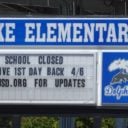Last week, I wrote on the Tea Party experiencing an increase of support in the wake of the IRS scandal, but now AEI has jumped on board as well.
As one might imagine, a compilation of polls – and yes including the liberal pollsters – found a similar long-term trend in favorability. Of course, when the Tea Party movement was fresh off the fight against Obamacare there was a much more favorable reaction to them among the general public.
Then the Nancy Pelosi and Democrat attack machine jumped in the messaging war with claims of false racist statements that never happened – despite a reward from Andrew Breitbart to find one piece of video to prove it – and the Tea Party began to receive some public skepticism and blow back.
As I reviewed the trends from Rasmussen Reports, AEI reviewed the trends from everyone BUT Rasmussen, which I like as a numbers kind of guy. There are a few considerations to keep in mind, because pollsters do not all ask the same questions, in the same manner/order, or give the same options to respond.
AEI’s public opinion team has completed a review of trends from 9 major pollsters on Tea Party “activism,” “support,” and “favorability.” Unlike Rasmussen, although questions about the Tea Party are not asked as frequently as they once were, or with any consistency many of the questions in this report show a slight drop in support since 2010. Quinnipiac University and Fox News, for instance, repeatedly ask one of the most specific questions about involvement – whether you are “part of the Tea Party movement.”
In August 2012, 16% of registered voters told Fox News they were part of the Tea Party movement. When Fox first asked the question in January 2012, 16 percent also gave that response. Gallup, AP/GfK-Roper, CBS News and the
New York Times, and NBC and the Wall Street Journal ask people whether they are “supporters.”
A March 2013 CBS/New York Times question and an April 2013 AP/GfK-Roper survey – as AEI notes – produced just about identical responses. In the CBS/New York Times poll, 22% said they were supporters, and 23% said the same in the AP/Gfk poll.
AP/GfK-Roper, CBS, and NBC find that around six in ten now say they aren’t supporters. Gallup gives people the option of saying “neither” and this obviously affects results.
The results of the AEI analysis is mixed, and I would easily conclude it is a result of pollster inconsistency. Anyone who has knowledge of statistics can easily identify various issues with drawing a conclusion from this compilation. However, even AEI admits its own inconclusively:
The ABC/Washington poll asks a different question about whether people support or oppose the Tea Party. Their latest May 2013 poll shows that 40 percent support and 43 percent oppose, slightly down from the 44 percent who supported it and 43 percent who opposed in August 2012.Fox and CNN/Opinion Research Corporation ask people whether they have a favorable or unfavorable opinion of the Tea Party.
In a May 2013 CNN/ORC poll, 37 percent had a favorable opinion of the Tea Party, up from 28 percent in March. The Pew Research Center asks if people agree or disagree with the Tea Party. In their December 2012 poll, 18 percent agreed and 29 disagreed. Most said they had no opinion either way.
[scribd id=144242412 key=key-2f0yqkaekoaqecmhq3qe mode=scroll]
Related articles
- Favorable Views of Tea Party Up 14 Points Since January (richardbaris.wordpress.com)







